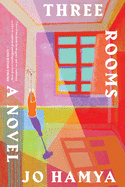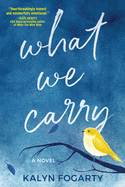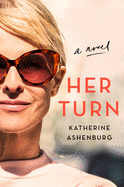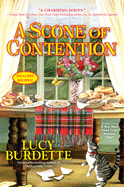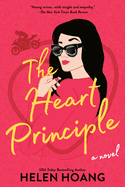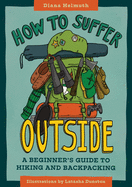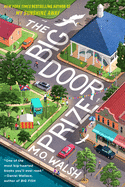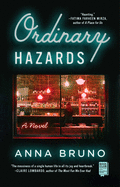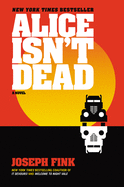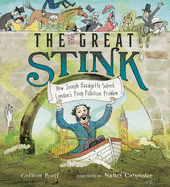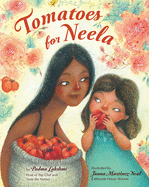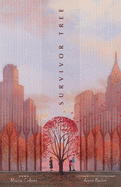Animals on Board
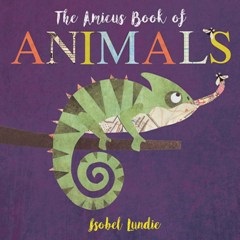 In Isobel Lundie's creatively illustrated The Amicus Book of Animals (Amicus Ink, $8.99), each page introduces an animal, with a simple sentence describing one of its regular behaviors: "Chameleon/ I can catch bugs with my tongue. Yum!" Every graphic paper collage creature and its background features maps, grids, patterns and textures that invite pre-readers to interact tactilely with the book.
In Isobel Lundie's creatively illustrated The Amicus Book of Animals (Amicus Ink, $8.99), each page introduces an animal, with a simple sentence describing one of its regular behaviors: "Chameleon/ I can catch bugs with my tongue. Yum!" Every graphic paper collage creature and its background features maps, grids, patterns and textures that invite pre-readers to interact tactilely with the book.
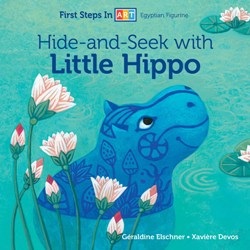 Equally patterned is Little Hippo from Géraldine Elschner and Anja Klauss's Hide-and-Seek with Little Hippo (Schiffer Kids, $8.99). This board book is a part of the First Steps in Art series and features an illustrated version of "a figurine from ancient Egypt." Little Hippo "likes to play hide-and-seek" and so moves from place to place--desert sand, bricks of houses, the forest--picking up the patterns of his background like a chameleon. When Mommy calls him, Little Hippo returns to the water, still covered in shiny yellow from the sand, umber from the brick and green from the forest. Caretakers and little ones will certainly appreciate the beauty of Little Hippo's patterned body and should enjoy "finding" Hippo in his various hiding places.
Equally patterned is Little Hippo from Géraldine Elschner and Anja Klauss's Hide-and-Seek with Little Hippo (Schiffer Kids, $8.99). This board book is a part of the First Steps in Art series and features an illustrated version of "a figurine from ancient Egypt." Little Hippo "likes to play hide-and-seek" and so moves from place to place--desert sand, bricks of houses, the forest--picking up the patterns of his background like a chameleon. When Mommy calls him, Little Hippo returns to the water, still covered in shiny yellow from the sand, umber from the brick and green from the forest. Caretakers and little ones will certainly appreciate the beauty of Little Hippo's patterned body and should enjoy "finding" Hippo in his various hiding places.
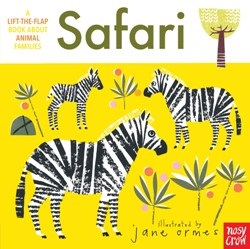 Jane Ormes's Animal Families: Safari (Nosy Crow, $9.99) also features beautifully patterned animals from the African continent. Safari teaches the proper names of animals and animal groups: "A daddy zebra is called a stallion./ A mommy zebra is called a mare. A baby zebra is called..."; children can lift the flap to discover "a foal!" Leopards, lions and rhinos get the same treatment, until the final page: "Groups of these animals are called.../ a pride of lions/ a dazzle of zebras,/ a leap of leopards,/ and a crash of rhinos." The bright colors and interactive elements make this an entertaining book for kids and adults alike. --Siân Gaetano, children's and YA editor, Shelf Awareness
Jane Ormes's Animal Families: Safari (Nosy Crow, $9.99) also features beautifully patterned animals from the African continent. Safari teaches the proper names of animals and animal groups: "A daddy zebra is called a stallion./ A mommy zebra is called a mare. A baby zebra is called..."; children can lift the flap to discover "a foal!" Leopards, lions and rhinos get the same treatment, until the final page: "Groups of these animals are called.../ a pride of lions/ a dazzle of zebras,/ a leap of leopards,/ and a crash of rhinos." The bright colors and interactive elements make this an entertaining book for kids and adults alike. --Siân Gaetano, children's and YA editor, Shelf Awareness



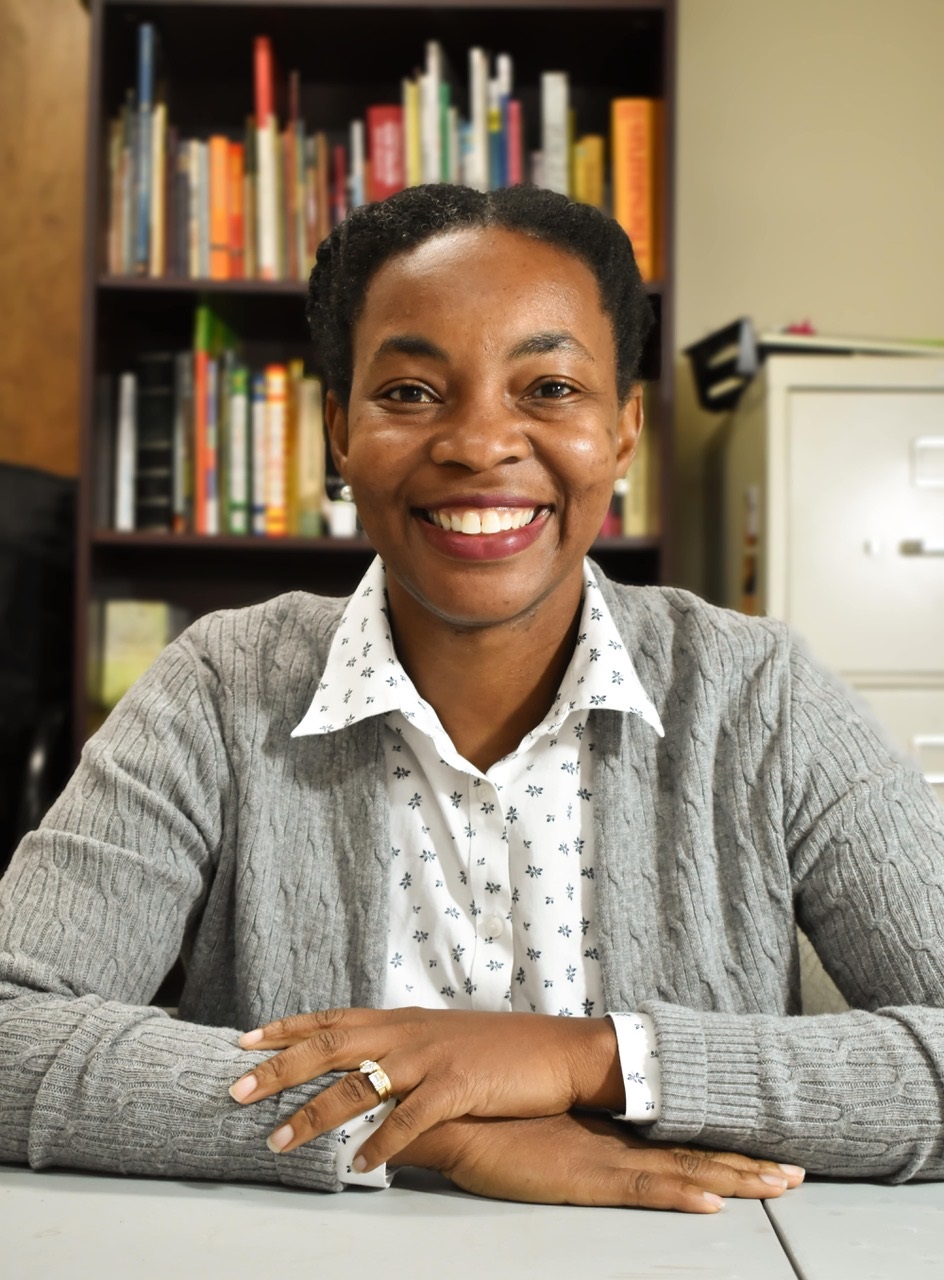
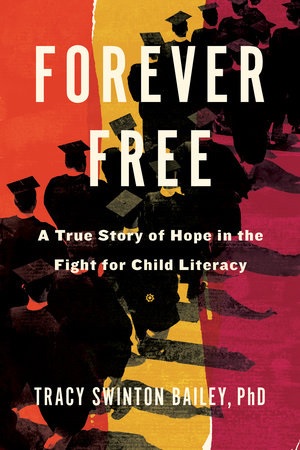 Book you're an evangelist for:
Book you're an evangelist for: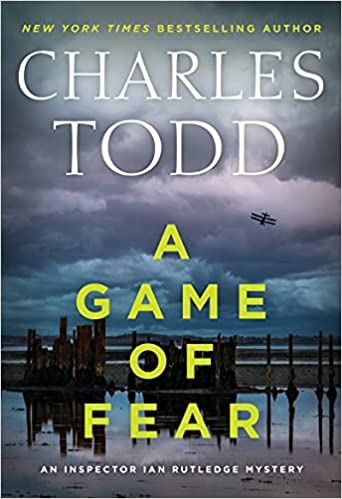 Caroline Todd, who wrote several bestselling series with her son Charles under the pen name Charles Todd, died on August 28. One series starred a detective, Inspector Ian Rutledge, a World War I veteran returning to work at Scotland Yard, the other featured Bess Crawford, an English battlefield nurse serving in France during World War I. Todd and her son published the first book in the Ian Rutledge series, A Test of Wills, in 1996. The book won the Barry Award from Deadly Pleasures mystery magazine and was nominated for the John Creasey Award in the U.K., the Edgar Award and the Anthony Award. The Independent Mystery Booksellers Association named A Test of Wills one of the 100 favorite mysteries of the 20th Century, and it was a New York Times Notable Book of the Year.
Caroline Todd, who wrote several bestselling series with her son Charles under the pen name Charles Todd, died on August 28. One series starred a detective, Inspector Ian Rutledge, a World War I veteran returning to work at Scotland Yard, the other featured Bess Crawford, an English battlefield nurse serving in France during World War I. Todd and her son published the first book in the Ian Rutledge series, A Test of Wills, in 1996. The book won the Barry Award from Deadly Pleasures mystery magazine and was nominated for the John Creasey Award in the U.K., the Edgar Award and the Anthony Award. The Independent Mystery Booksellers Association named A Test of Wills one of the 100 favorite mysteries of the 20th Century, and it was a New York Times Notable Book of the Year.